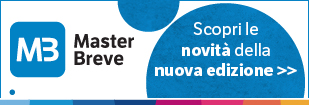In the early 2000s, Parmalat was one of Italy’s largest and most successful companies, with operations in more than 30 countries around the world. However, in 2003, the company was rocked by a major financial scandal that revealed widespread accounting fraud and mismanagement.
The scandal was uncovered when a group of banks raised questions about Parmalat’s accounting practices and discovered that the company had been using complex financial instruments to conceal its true financial position. It was eventually revealed that Parmalat had been engaging in a range of fraudulent activities, including falsifying financial statements, creating fictitious transactions, and hiding debt in off-balance sheet entities.
The fallout from the scandal was significant, with Parmalat filing for bankruptcy in 2004 and several of its executives facing criminal charges. The case was one of the largest and most complex financial scandals in Italian history, and it had a major impact on the country’s financial system and reputation.
The Parmalat scandal highlights the importance of ethical behavior and financial transparency in the accounting profession. Italian accountants can learn from this case study by ensuring that they always act with integrity and honesty, and by maintaining a commitment to accurate and transparent financial reporting.
To avoid the kind of fraud and misconduct that occurred at Parmalat, accountants should always be vigilant and proactive in their approach to financial management. This includes implementing robust internal controls and compliance programs, conducting regular audits and reviews, and staying up-to-date on the latest accounting standards and regulations.
In addition to these measures, it is also important for accountants to maintain strong relationships with their clients and stakeholders, and to communicate openly and transparently about financial performance and risks. By doing so, they can help to build trust and confidence in the financial system, and ensure that their clients are well-equipped to navigate the challenges of the modern business world.
Overall, the Parmalat scandal serves as a cautionary tale for accountants in general, and underscores the importance of professionalism, ethical behaviour, and financial transparency in the accounting profession. By learning from this case study and implementing best practices in their own work, accountants can help to safeguard the integrity of the financial system and contribute to the long-term success of their clients and the wider economy.
In a more general sense, for Italy, the Parmalat case study can also show that bankruptcy and failure although are key indicators of when a company has made some poor decisions and can underline failure, don’t necessary mean the end of the life for the idea: Parmalat now, even as a subsidiary of a larger group (and no longer Italian owned) is still a thriving business with a revenue of over €6bn per year.























